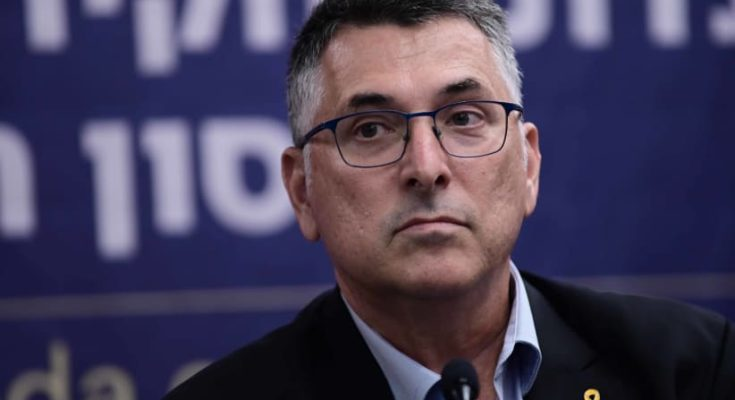Sa’ar began by saying that the massacre was a result of “mistaken strategic navigation” that lasted 30 years, since the Oslo Accords in the mid-1990s.

Sa’ar, who served as a minister in four different governments and as government secretary in two others, joined the current government days after October 7 but quit in March over criticism that the government was not taking sufficient action to destroy Hamas’s military and governing capabilities.
Sa’ar began by saying that the massacre was a result of “mistaken strategic navigation” that lasted 30 years, since the Oslo Accords in the mid-1990s. These 30 years included “12 years of retreats and then 18 years of containment,” he said.
During the first period, which included the Oslo Accords, the retreat from Lebanon in 2000, and the Disengagement from Gaza in 2005, “the loss of intelligence and operational control was dramatic, and by retreating, Israel enabled the establishment of terror armies at its northern and southern borders,” Sa’ar said.
During the second period, which was one of “containment,” Sa’ar continued, “there was agreement in political and security circles on the need to give ‘goodies’ to Hamas,” which included allowing Qatari money to enter the Gaza Strip or enabling workers from Gaza to work in Israel. This was a mistake, Sa’ar said, and part of the “conception” that Hamas was deterred and uninterested in a flare-up of violence.


This conception still prevails on the northern front, Sa’ar argued.
“If the Galilee has been empty for 10 and a half months, we are continuing to contain. This needs to be understood in depth,” Sa’ar explained. “Whoever says, ‘Let’s finish the war; we have a munitions problem; we are not at an optimal point; the army is exhausted… I ask whoever says this: is it clear to us that the other side will use a ceasefire to rearm, perhaps more effectively than we would? Are we sure that when we return, there will be no additional fronts on top of the current ones?”
Sa’ar said that while the government’s judicial reforms in 2023 contributed to the security deterioration by increasing the infighting within Israeli society, the massacre could have nonetheless occurred on a different government’s watch.
“I was among those who warned that the judicial reform, in the way in which it was carried out, increased our national security risks. In the eyes of our enemies, there are two factors that they are always watching for – the extent of internal divisions and the relationship with the United States… Having said this, their wish to destroy us exists and will [continue to] exist, no matter which government there was or will be,” Sa’ar said.
“I disagree with some of my friends who were with me in the previous government, and today are with me in the opposition, who said that October 7 would not have happened under their watch. I have my doubts,” he added.



